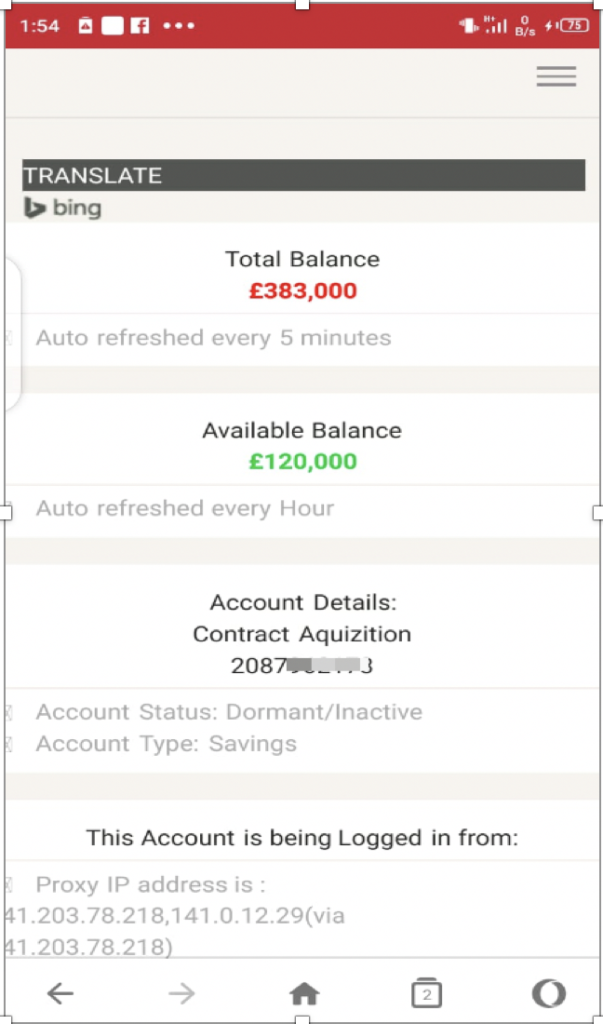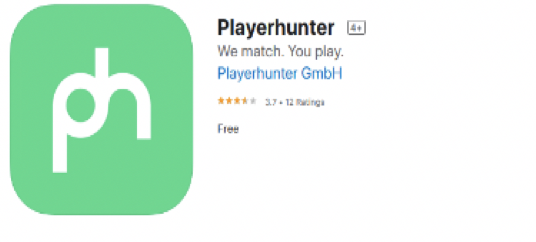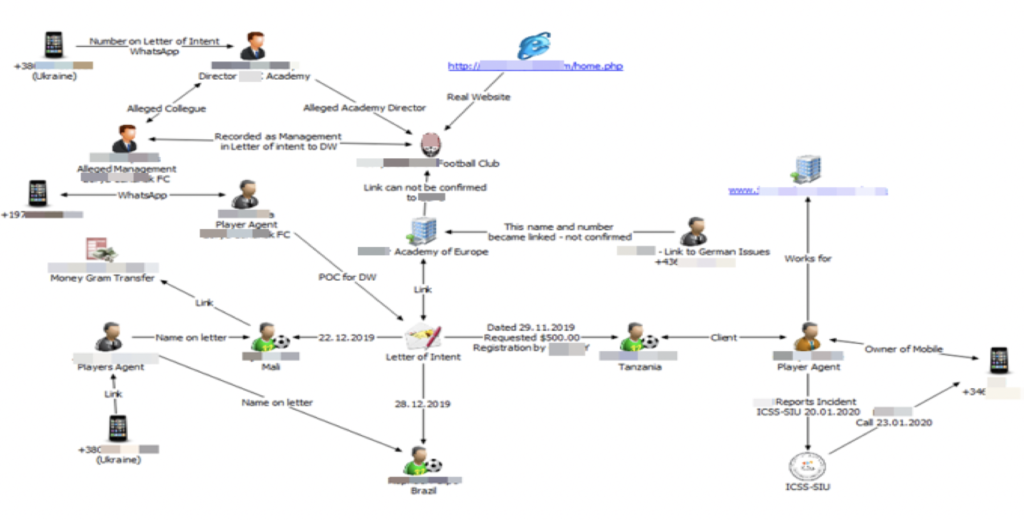Professional football is often seen as the Holy Grail by many aspiring young players, with their dreams of becoming the next Messi, Mane, Ronaldo, or Mbappe, and a golden ticket to escaping from their current situation, whilst securing the financial future of themselves and their families. It is a fertile opportunity for criminals and organised crime. Report by Fred Lord
The gilded view of a better life created by professional football also creates vulnerabilities and opportunities for exploitation by criminal entrepreneurs who are well versed in fraud and manipulation, whilst preying on the dreams and aspirations of youth.
Sport inadvertently creates a perfect storm for organised crime syndicates or opportunists, to infiltrate, defraud and exploit the young people, in a global market where there are significant gaps in sports governance, education, and supply chain monitoring for talent identification and recruitment. This exposes youth, who placed their trust in unregulated sports clubs or unscrupulous agents, to the imminent threats of trafficking or smuggling.
This situation is a double-edged sword, as youth who do not follow the legitimate football recruitment route, may at times still believe they are far better off than if they remained in their home environment. I was able to confirm this directly with young people from Mali, Cameron, and Ghana who had travelled to Paris, without any identification, medical or financial support. After their dreams of attending legitimate or fake football trials failed to materialise, there was no desire to return home.
There is still a lack of an international framework that allows providing proactive counter-recruitment strategies to mitigate the threat posed by criminals in this growing crime area. The gap in interpreting the true nature of how young people and their families are manipulated is being filled by NGOs, investigative journalists, and academics. The true figures of trafficking or smuggling of youth through sport internationally is unknown. There are some NGOs who have stated various figures in relation to youth trafficked or smuggled through football as a vehicle, but this requires greater research and analysis to better understand the true numbers.
The International Centre for Sport Security (ICSS), Sport Integrity Unit (SIU), has been involved in reviewing similar cases that have been reported since 2014, and currently, with the COVID-19 pandemic, the SIU is seeing an increase in cases being reported. Previously, criminals who are involved in the types of crimes like this would be able to approach families directly and present false dreams to their children about becoming wealthy football stars. The upfront fees to achieve this dream would set the parents with a lifetime of debt, and their children handed over to fraudsters and relocated to a foreign country.
During the pandemic, criminal syndicates have lost revenue and these restrictions have created criminal innovation, which has led to an increase in cybercrimes, sexual phishing, ghost games, and other virtual interconnected crimes related to sport. Social media is becoming a greater real-time threat platform to young athletes for approach when global borders cannot be crossed with the same ease as pre-COVID restrictions.
Tanzania, Spain, and Mali Cases:
In January 2020, contact was received from a concerned Spanish football agent, who advised that a number of his contracted young clients, had been approached by a possible fake scouting agent/network purporting to be based in Ukraine. The scout alleged that he was aligned to a sport academy based in Europe. From reviewing the material provided by the scout, though he was marketing that their network were licensed FIFA agents, the extremely poor framing of the documents, language and grammar raised suspicion on the legitimacy of the offers provided.
The initial method used for contacting the players was through the football recruitment platform ‘PlayerHunter’ App as a first approach. This and similar Apps are free for young players to register and upload their personal details, photographs, positions played, and videos including their aspirations. This type of information is a gold mine for organized criminals, and direct communications with the young players were initiated via WhatsApp messages and phone calls. Significant promises were made offering two-year contracts, trials, accommodation, and flights based on the upfront administrative payment of $500, to a Western Union account.
The methodology used by the scout in this football scam is based on the famous Nigerian 419 fraud scam, which is based on the Act and Section of the Nigerian Criminal Code for fraud-related offences. This scam approach is by email and promising outlandish cash returns to the person who is prepared to accept a bank transfer of illicit cash, into their own private bank account for an upfront fee. It appears that fraudsters are using this same methodology to scam young people using football as a hook. Based on the three contracts reviewed in this one case, the below flow chart has been formulated to better understand the network and process involved.
Nigeria Based:
 During the negotiation phase between the scout and player agent, in order to prove the availability of necessary funds for the young player upon his arrival in Ukraine, a screenshot of the bank balance of the scout’s network was provided as evidence of their cash flows. Analysis of the internet protocol [I.P] address identified the origin of the account being logged into from Lagos, Nigeria. This is corroborated by the accent of the scout during a telephone message left for the agent. [Click below]
During the negotiation phase between the scout and player agent, in order to prove the availability of necessary funds for the young player upon his arrival in Ukraine, a screenshot of the bank balance of the scout’s network was provided as evidence of their cash flows. Analysis of the internet protocol [I.P] address identified the origin of the account being logged into from Lagos, Nigeria. This is corroborated by the accent of the scout during a telephone message left for the agent. [Click below]
It is very possible that young players have been approached by this same syndicate from many other countries. It is critically important that exposure to this criminal modus operandi is communicated across multiple platforms, to prevent this from effecting further young athletes. Fortunately, in this case, the fraudulent approach was identified, and the player agent and young players were advised not to pursue it further.
Practical solutions to prevent trafficking by fake agents
Clubs and National Associations should:
- Include a warning on their websites of this scam and that if someone asks a player for money to assist with a trial/contract offer/extra training, then it is not a real offer.
- Warn players of the ways they may be approached and the methods the criminals are using.
- Advise players to contact the Club in question if they are offered a trial, contract or extra training and they are not sure if it is a real offer.
- Advise players that:
- Clubs will not contact you by Facebook, LinkedIn, or Twitter. If they do contact you online, then they will email you using a registered club email account.
- Clubs are not likely to use Hotmail, Gmail, or Yahoo email accounts. They will only use their official email account to make the first contact with you.
- If you have any doubts, contact the Club by checking their website for contact details first and telephone or email them.
- Scouts are paid by the Club. A genuine approach to you will never include a request for payment.
- Clubs never ask for money in relation to a trial or contract offer. If someone asks you for money to arrange a visa, flight, or medical then the offer is not real.
- Visa has to be applied for in the player’s home country. If someone is offering to do this for you in return for payment, then it is not a real offer.
The ICSS has provided reports and integrity alerts to football organisations in relation to these issues and will continue to work with all stakeholders to share information to keep ahead of the emerging criminal threats to youth in sport.
Fred Lord is the Director-Sport Integrity & Protection at the ICSS, and former Assistant Director and Head of INTERPOL’s Anti-Corruption Office (IACO) Lyon France. He was also was the Programme Manager for the INTERPOL-FIFA sport integrity training initiative, and served as the Manager Covert Services & Counter Intelligence, for an Australian Police Anti-Corruption Organisation.




